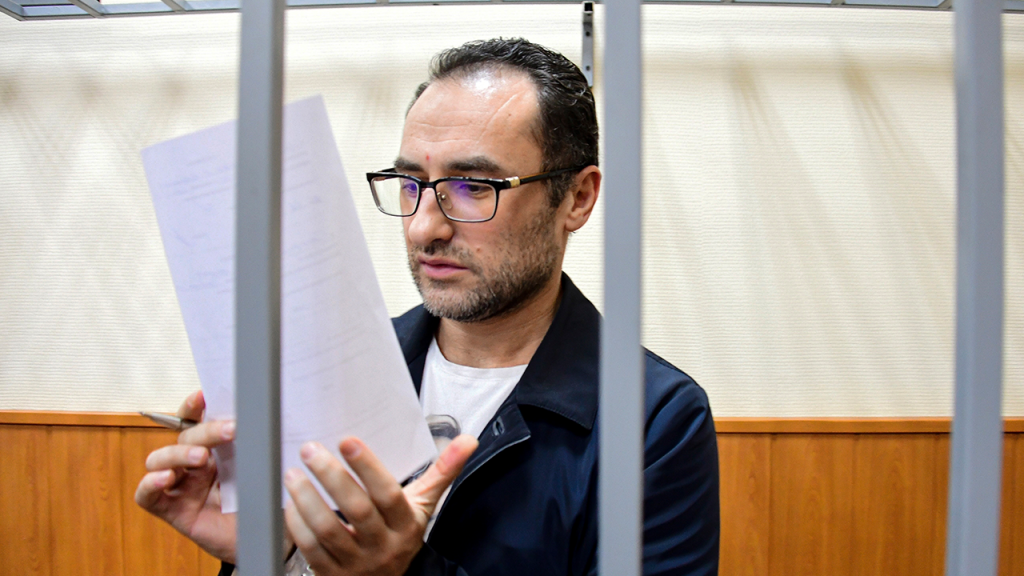Paragraph 1: The Dual Sentences of Eugene Spector
Eugene Spector, a Russian-born U.S. citizen, finds himself ensnared in a complex legal battle within the Russian judicial system. Already serving a prison sentence for bribery, Spector has been handed a second, and considerably more severe, sentence for espionage. This new 15-year term adds another layer to his legal predicament, raising questions about the nature of the charges and the potential geopolitical implications of his case. The espionage conviction, handed down by a Moscow court, shrouds Spector’s situation in further ambiguity, as details surrounding the accusations remain largely undisclosed to the public.
Paragraph 2: A Background of Transnational Ties
Spector’s life story reflects a cross-cultural journey, marked by his birth and upbringing in Leningrad, Russia, followed by his eventual relocation to the United States and acquisition of American citizenship. This dual nationality places him at a unique intersection, caught between the legal systems and geopolitical tensions of two powerful nations. His former role as an executive at a medical equipment company in Russia further adds to the complexity, suggesting potential connections and access to information that may have factored into the charges against him.
Paragraph 3: The Initial Bribery Conviction
Prior to the espionage charges, Spector had already been convicted of bribery in September 2022, receiving a three-and-a-half-year prison sentence. This initial conviction stemmed from his involvement in facilitating bribes to Anastasia Alekseyeva, an aide to former Russian Deputy Prime Minister Arkady Dvorkovich. Spector’s role in enabling these bribes, which reportedly involved two expensive overseas vacations, raises questions about his business dealings and the ethical standards he adhered to while operating within the Russian business landscape.
Paragraph 4: The Web of Connections: Alekseyeva, Dvorkovich, and the Russian Government
The individuals linked to Spector’s bribery conviction further illuminate the intricate web of connections within the Russian political and business spheres. Anastasia Alekseyeva, the recipient of the bribes, subsequently received a 12-year prison sentence in April. Her association with Arkady Dvorkovich, who served as a deputy prime minister under Dmitry Medvedev, reveals a connection to the upper echelons of Russian power. Dvorkovich’s current position as the head of the international chess federation FIDE adds another layer of intrigue to the situation, raising questions about the potential reach and influence of these individuals.
Paragraph 5: The Espionage Charge: A Veil of Secrecy
The espionage charge against Spector, leveled in August of the previous year, remains shrouded in secrecy. Russian authorities have not publicly disclosed the specific details of the allegations, leaving much to speculation. This lack of transparency further complicates the case, hindering a comprehensive understanding of the alleged acts that led to this serious charge. The absence of information fuels concerns about the fairness and transparency of the legal proceedings against Spector.
Paragraph 6: The U.S. Response and the Broader Context
The United States State Department has acknowledged awareness of Spector’s sentencing and has stated that it is monitoring the situation. This response underscores the diplomatic complexities inherent in cases involving dual citizens and accusations of espionage. Spector’s case unfolds against a backdrop of heightened tensions between the U.S. and Russia, raising the stakes and adding a geopolitical dimension to his legal predicament. The limited information available and the sensitive nature of the charges contribute to the uncertainty surrounding Spector’s future and the potential ramifications of his case on the relationship between the two countries. The case highlights the precarious position of individuals with ties to both nations, particularly in times of strained international relations.

